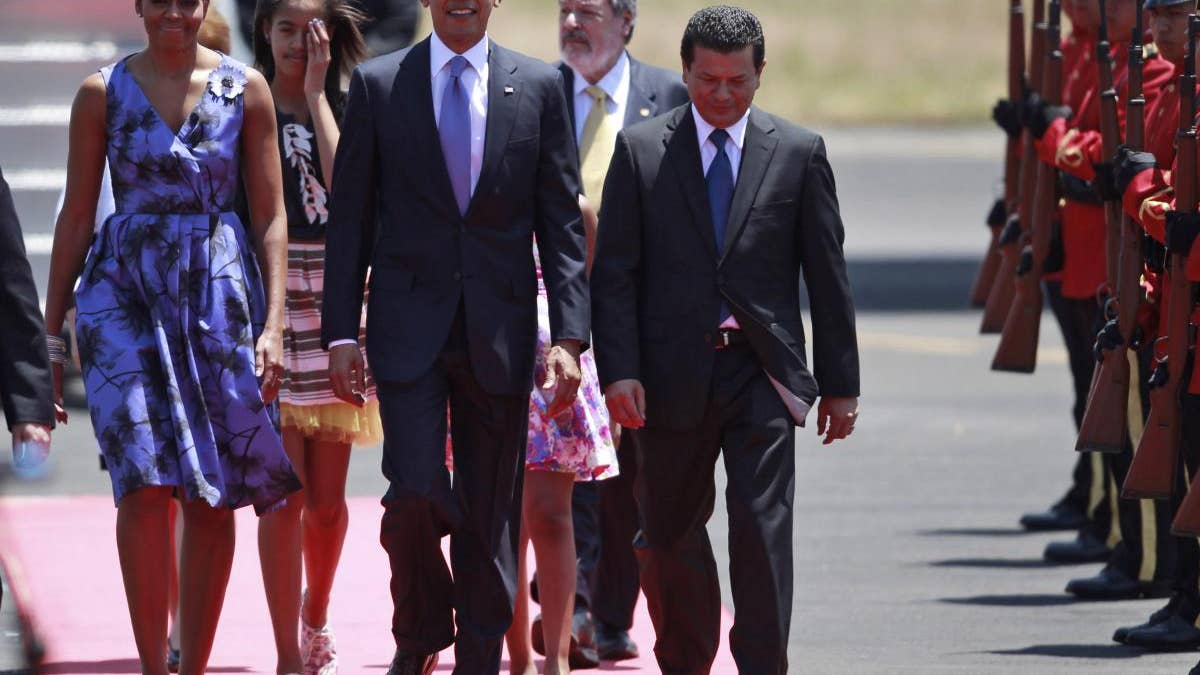
President Barack Obama, accompanied by his wife Michelle Obama and his daughters, walks upon his arrival to the international airport in San Salvador, El Salvador, Tuesday March 22, 2011. (Photo/Dario Lopez-Mills)
The President of El Salvador is a leftist, so why does President Obama feel the need to stop in this Central American country? It sends a clear message to Venezuela's President Hugo Chavez: The United States can have a strong working relationship with a leftist leader.
Obama was criticized for greeting Chavez at the summit of the Americas in Trinidad and Tobago in 2009, but the two Presidents have not met since, and forming such an alliance with El Salvador's Funes isolates Hugo Chavez and elevates Funes' power in Central America.
President Obama needs a partner in the region and President Mauricio Funes fits the bill. "The other leaderships that are to be found in the region are either too weak, too corrupt, or too controversial," says Kevin Casas-Zamora, the former Vice President of Costa Rica.
When it comes to US relations with Central America, President Obama's main concerns are immigration, trade and security. Funes has a similar agenda and he's the type of pragmatic politician Obama would like to do business with.
Other governments in the region prove problematic.
"You have Guatemala, Honduras, and Nicaragua which are getting worse, particularly Guatemala, and you have El Salvador in the middle," says US-Latin American relations expert, Ted Piccone.
El Salvador has continuously cooperated with the United States government to combat narcotics trafficking and organized crime. Over a million Salvadorians currently live in the United States; not all legally, and many under temporary status. Turning that into something more permanent is an issue Funes will address on this visit. And working on immigration issues with a Central American country in a positive manner is also a win for President Obama.
Other countries in Latin America take note: El Salvador is a positive example, in the eyes of the Obama administration.












































